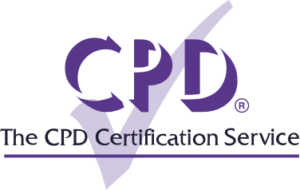In this Office Workers CPD Guide
Why do Office Workers need CPD?

An office worker is a person who works in an office setting, performing tasks such as administrative and clerical duties, data entry, customer service, scheduling appointments and meetings, managing files and documents, and more. The specific job duties of an office worker can vary depending on the industry and type of company they work for. Some of the different types of businesses an office worker may work in include corporations, government agencies, non-profit organisations, healthcare facilities, educational institutions, law firms, financial institutions, and technology companies. The type of business that an office worker is employed in has a strong influence on the types of tasks they may be responsible for, as well as any additional training they may require.
What our customers have to say
Dan King
Mobilisation, Training & Performance Manager

Sophie Aiken
HR Manager

Harriet Lee
Retail Recruitment Manager

What CPD courses do Office Workers need?
The nature of office work can be broad because the tasks can vary depending on the type of company worked for. Due to this, there are a wide range of CPD Online College courses that are well suited to an office worker.
Some of these include:
Workplace Stress Awareness – this course covers what stress is, how it impacts people and what can be done to reduce work-related stress. The course will also cover how an employee is considered fit for work after a period of absence, as well as acknowledge the importance of risk assessments in the workplace to ensure all employees are safe and that their mental health and well-being are taken into account.
Customer Service Skills – this course will help you gain a greater understanding of how to anticipate reactions and expectations from customers and acknowledge that some customers can be tricky. You will learn the best techniques in order to stay professional and calm in these situations.
Disciplinary and Grievance Procedures Training – this course is suitable for HR and line managers who want to understand the disciplinary and grievance process and learn more about the legalities of managing grievances, disciplinaries and dismissals.
DSE Awareness – this course explains everything to do with display screen equipment (DSE) and the risks this poses. When working at a desk for extended periods of time, it is important to ensure the workstation is planned in order to avoid stress and strain on the user.
Employment Law – this course is suitable for anyone who wants and/or needs to become familiar with key areas of employment law, or for anyone wanting to update their existing skills and knowledge. You will explore the legal rights and responsibilities of both employees and their employers to enable you to gain a better understanding of UK employment law.
Equality and Diversity – our Equality and Diversity course is perfect for managers and supervisors to help make sure that they put best practice into place in the working environment. Equality and diversity training helps to reduce the occurrence of discrimination and make sure everyone from any walk of life is treated equally and fairly.
LGBTQ+ in the Workplace – this course is designed to raise LGBTQ+ awareness and inclusion in the workplace and is suitable for all individuals, especially line and senior managers, to gain the knowledge needed to promote inclusion and avoid discriminatory practices in the workplace.
Minute Taking – this course is suitable for anyone who wants refresher training or an introduction to minute taking. You will gain a detailed insight into what minute taking is and why it is important, as well as understand why the ability to take effective minutes is a crucial skill for the continued success of meetings.
Office Health and Safety – this course will help you gain a greater understanding of the importance of health and safety, as it prevents workers and others from being injured or being made ill while they are at work. You will learn the three main reasons why employers should manage health and safety in the workplace and that it is their obligation to ensure health and safety is adhered to.
Sexual Harassment in the Workplace – this course covers what sexual harassment is, the environments it takes place in and the types of sexual harassment. It also covers legislation surrounding sexual harassment and the policies and procedures workplaces should have in place. It also includes how to create a positive workplace culture and support.
Understanding Bullying in the Workplace – this course is suitable for anyone who would like to learn more about bullying in the workplace including what it is, why it happens, the effects workplace bullying can have and what the law says about it.
Download our CPD trackerA guide to CPD for Office Workers
Most office workers typically need to have a good understanding of computer skills, such as using email, word processing programs and spreadsheets. This means that office workers may use a variety of tools and technology to perform their jobs, such as computers, telephones, printers and multiple software programs. They may work independently or as part of a team, and their work hours can vary depending on their company’s needs. Strong communication and organisational skills are crucial for success in an office environment, due to the wide range of teams and job roles you may find in the setting. Some positions may also require specific training or certifications, such as in accounting or project management.
Office workers can benefit from continuing professional development (CPD) as it helps them to stay up to date with trends and technologies, as well as upskill into new areas. This can lead to career advancement and increased job satisfaction. CPD can be in the form of training courses, workshops, seminars, conferences, working with mentors or self-directed research. It is important for office workers to prioritise their professional development to remain competitive in the job market and achieve their career goals.
CPD certificates
All of the courses that we provide are accredited by the relevant regulatory body for the subject area so that you receive the best learning possible. You can complete your chosen course online, no matter which one you choose, making CPD Online College the most flexible CPD option. Even though we’re based online, you can still receive support in relation to a course if needed, by simply reaching out to us on our online chat. Once you have completed a course with us you will gain immediate access to your CPD certificate which will signify that you have passed the course.
Logging CPD hours
You can log the hours that you spend working through the course content to prove how many hours you have spent on CPD training. Keeping a log of your CPD hours is the easiest way to track your learning. We advise that you simply keep a diary of the dates and times that you work on your course, and any other CPD training, so that you know how much time you have spent on CPD each year.
Keeping evidence
Your CPD certificate is a strong piece of evidence that can be used to showcase that you have developed knowledge in a particular area. You can store it in a CPD portfolio, along with your logged CPD hours, and any other CPD activities you do. We advise students to keep an electronic log of CPD evidence (and back this up), along with a hard copy, to ensure that their CPD evidence does not get lost.
Renewing CPD certificates
The content in our courses is updated in line with updates to your industry. Due to this, it is recommended that you renew your CPD certificates with us every two years so that you are working with the most up-to-date knowledge in your subject area. You can easily renew your CPD certificate with CPD Online College by simply completing a refresher of your chosen course.
























